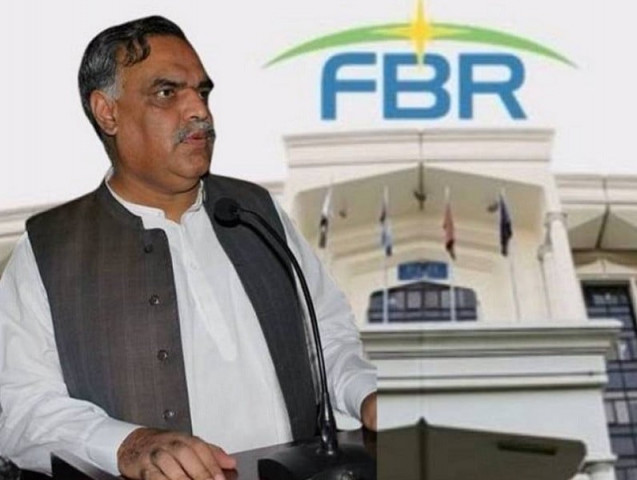FBR to raise property valuations
Plans to collect Rs70b by increasing valuations to 90% of market prices

While hitting back at politicians for striking compromises with traders and keeping the tax body incapacitated, the Federal Board of Revenue (FBR) said on Friday that it would increase property valuations close to 90% of market prices to collect an additional Rs70 billion in the next fiscal year.
Out of the Rs70 billion, an amount of Rs30 billion will be the impact of increase in property valuations and the remaining Rs40 billion is estimated to be collected through a higher withholding tax on the revised valuations and the new withholding tax rates.
The statement about property valuation was made during a meeting of the Senate Standing Committee on Finance, where Pakistan Peoples’ Party (PPP) Senator Farooq H Naek supported the government’s proposal to slap 10% sales tax on newspapers.
“No one reads newspapers now and the government should tax them,” Naek said, adding that the government needed money therefore it should tax the newsprint.
The government has slapped 10% general sales tax (GST) in the budget, which may give revenues of only Rs400 million but it will adversely hit a struggling industry.
From July, the FBR would increase property valuations from the current average of 75% of market prices to 90%, said Mir Badsha Khan Wazir, Member Operations of the FBR, in the committee meeting.
The federal government determines property valuations in certain cities for collecting the withholding tax. Before the new budget, it was charging 3% income tax on the sale and purchase of property from the filers of tax returns. For non-filers, the rate was 6% on sale and 10.5% on purchase.
In the budget, the government not only increased tax rates for filers and non-filers but also introduced a third classification of late filers – a description that is aimed at facilitating the persistent non-filers to pay a lower tax rate and undertake a transaction.
There were heated arguments, allegations and counter-allegations during the committee meeting between the FBR officers, the members of the committee and the representatives of the private sector hurt by the wrong taxation policies.
“The way the government is increasing taxes on the salaried class, one day these people would be compelled to steal things,” remarked Senator Shibli Faraz, the leader of opposition in the Senate.
Faraz also hit out at the FBR and Finance Minister Muhammad Aurangzeb, saying “Pakistan’s problem is the bankers-turned-finance ministers, who know nothing about the economy”.
Faraz said that Aurangzeb was also a banker and he did not know much about the economy.
The leader of the opposition said that it was financially unviable to become a filer and the only survival mode was to remain a non-filer, as the current taxation policies did not reward honesty.
“Why did the government back down from the compulsory condition of Computerised National Identity Card (CNIC) after a few months,” questioned Amna Faez Bhatti, Member Policy Inland Revenue of the FBR.
She also questioned the meagre spending on the FBR by the successive governments. Her remarks echoed the frustration within the FBR about low spending on human resources and development, which was less than 1% of the total tax collection.
The Pakistan Tehreek-e-Insaf (PTI) government had withdrawn the condition of compulsory CNIC for daily purchases of over Rs50,000 aimed at documenting the economy in 2019.
However, many actions of the FBR are also contrary to the documentation drive, as it has increased the sales tax from 15% to 18% on sales made by the large retail shops integrated with the FBR.
“Only 5% of the retail sector is registered with the FBR and it is now again going after the 5% by completely ignoring the undocumented 95%,” said Ziad Bashir, the owner of retail brand IDEAS.
He said that there had been a constant increase in sales tax on the businesses integrated with the FBR and it had started hurting after the government earlier increased the tax rate from 9% to 12%.
However, the FBR’s member policy was of the view that the tax was being collected from the consumers and should not be a concern for the sellers – a point that was not accepted by a majority of the committee members and the stakeholders.
Compared to the zero tax contribution by the unregistered 95% retailers, the registered and integrated businesses pay about 60% in the shape of sales tax, income tax and super tax, said Bashir.
“When clothes can be bought from the unregistered buyers at much cheaper rates, then why would the shoppers bother about the fancy shops,” said Senator Mohsin Aziz of the PTI.
But the FBR’s member policy remained unmoved, arguing that in a country where the government was forced to impose 18% sales tax on the packaged milk, increasing the tax rate on branded shops by 3% should not be a matter of discussion.



















COMMENTS
Comments are moderated and generally will be posted if they are on-topic and not abusive.
For more information, please see our Comments FAQ